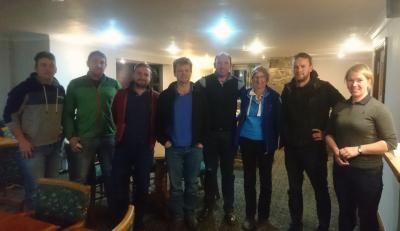Reducing antibiotic use on sheep farms at lambing time through best practice management, by improving nutrition and hygiene
Project Description
The global burden of antimicrobial resistant infections is growing and poses a serious threat to human and animal health. This project investigated whether changes to flock management, mainly through improved nutrition and hygiene, could reduce the need for antibiotics without compromising production or animal health and welfare.
The aims of the project aligned with the Welsh Government’s five year Implementation Plan for Wales that aims to reduce antimicrobial resistance in animals and the environment.
By focusing on flock health, nutrition and cleanliness in the lambing shed the group made significant progress on reducing the amount of antibiotics required.
Project outcomes
- Silage analysis encouraged the group to look at where improvements in silage making could be made to improve quality. Additionally the analysis allowed accurate rationing to tailor the supplementation to the ewes’ requirements.
- Metabolic profiling by blood sampling ewes pre-lambing highlighted any issues with the health and nutrition of the flocks and enabled corrective action to be taken.
- Colostrum quality is quick and simple to measure on farm using a refractometer and provides a useful indicator of whether the lambs are receiving that important early life protection.
- Cleanliness in the lambing shed is paramount and was successfully achieved through cleaning out and disinfecting pens, disinfecting feeding tubes and wearing gloves when assisting births.
- On average, the farmers in the group reduced their antibiotic usage at lambing by 60%.
For more information on what the group achieved see the full report below.

